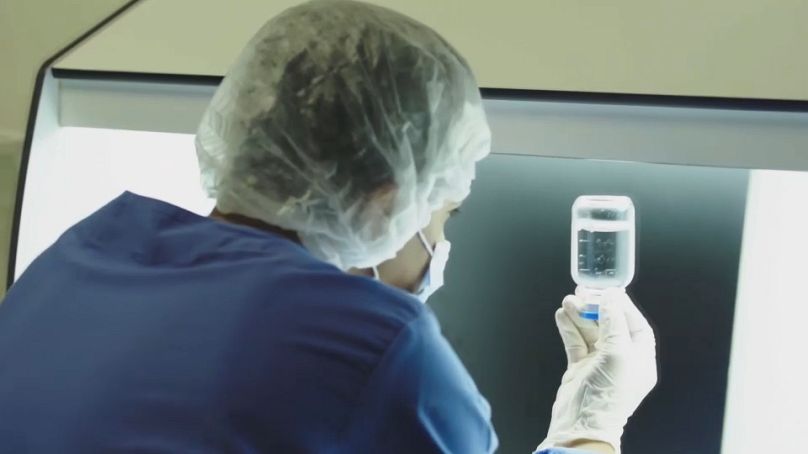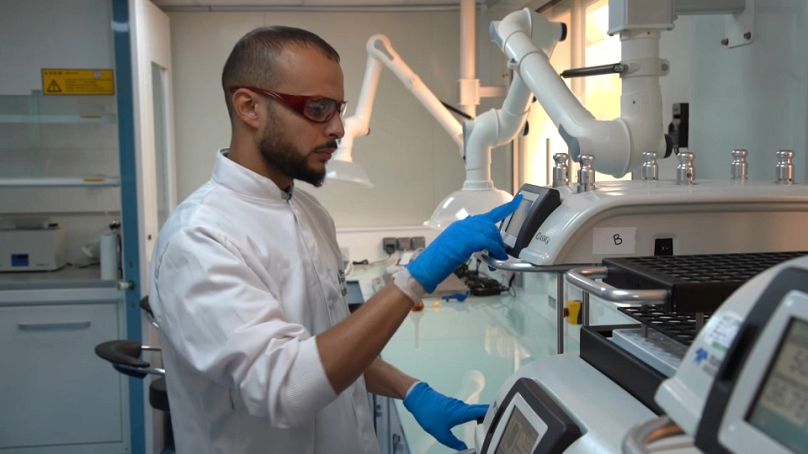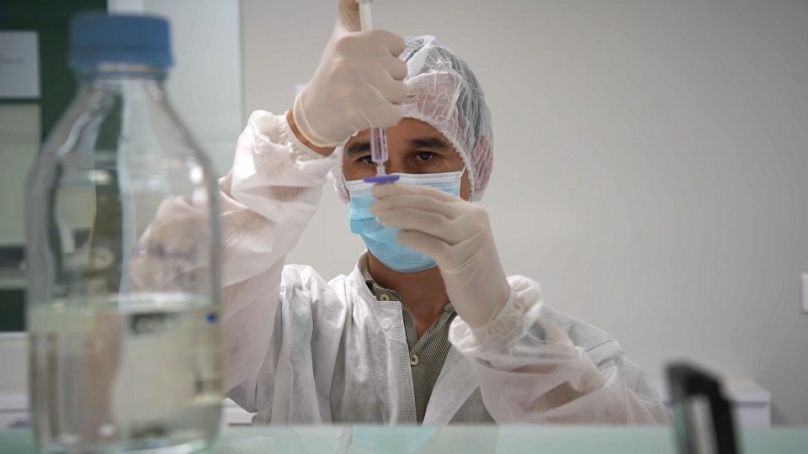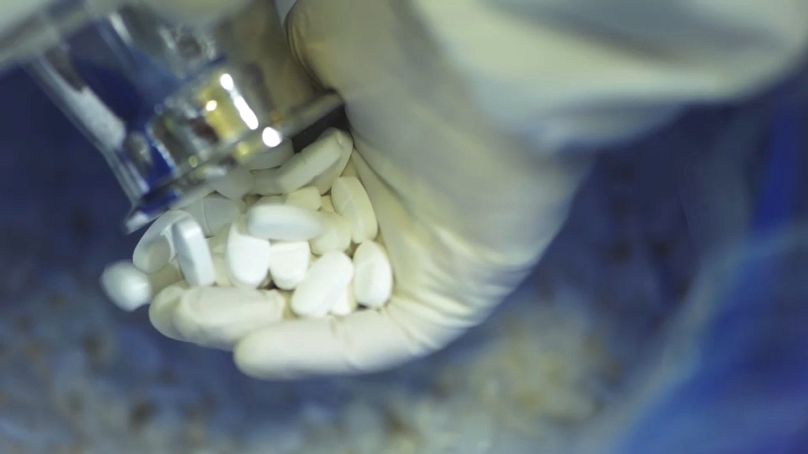**In just a few decades, Algeria has become one of Africa’s leading pharmaceutical producers. More than 2.5 billion euros worth of medicines were produced last year. Some 200 production units cover nearly 70% of the country’s generic needs, and this self-sufficiency is good news for the country and the region, as the international market remains volatile. **
This deep transformation in the pharmaceutical industry is strengthening the region’s health security, which may in turn, help to provide food security and many labaroties around the country are participating in the effort.
Frater Razes Laboratories
An example is the Frater Razes laboratories. In the midst of the pandemic, it put on the market an anticoagulant which was prescribed to Covid-19 patients. This was the first time that Algeria produced biosimilar medicines: made from living organisms. Abdererahmane Boudiba is the Secretary General of Frater Razes,
“The world today is moving towards biotechnology. We have anticipated this trend in the same way as international laboratories through pharmaceutical innovation, by orienting our production towards biosimilars and the creation of products from cell culture. This product had been imported for 20 years. We have ensured self-sufficiency for our country, for Algerian patients.”
The laboratory now plans to increase its exports. But another priority is to take further step towards self-sufficiency, and thanks to its research it hopes it will soon be able to synthesise organic substances. Hamza Mansour is the Managing Director,
“If we carry out this biosynthesis, we will not have to import raw materials. We will manufacture our own raw materials, we will ensure our biosynthesis, our manufacturing from A to Z.”
Several reforms have brought about a paradigm shift in the country, where health products have gone from being an economic burden to a lever for growth.
Biopharm Research and Development
Biopharm is another private laboratory that has recently started marketing oncology products, anticancer drugs, whose development requires complex infrastructures and massive investments. Ayadi El-Ghani is the Production Manager,
“It is important to know that the pharmaceutical industry is the locomotive of the Algerian general industry in Algeria. It is an industry that has experienced double-digit growth for the past twenty years. The challenge is now to acquire the know-how for the production of new technologies. We have the ambition for next year to move into hormonology. And why not move on to biological drugs in the near future?”
In the research and developements laboratory at Biopharm it is developing its next products in collaboration with the Algerian scientific and academic community. The aim is to develop an industry that is comparatively young on a global scale.
But while the Algerian pharmaceutical sector currently covers 70% of the needs of the Algerian population in generic medicines, how to produce the remaining 30%? We asked Idir Boutmeur, who is the Head of the R&D centre at Biopharm,
“The remaining 30% are products that are quite difficult to develop, innovative products. Everything depends on innovation, which is the key to the success of any industry, and in order to find these products, we have to invest in human resources, in premises, in Research and Development centres.”
Biocare: first African company to produce insulin
A few kilometres away, the firm Biocare has become the first company in Africa to manufacture insulin in pen form. This has once again reduced the import bill as diabetes care is one of the main items of expenditure for Algerian social security. Abdelkader Amraoul, is the General Manager,
“This is a unique technique and technology on our African continent. It is a vital product for the Algerian patient and the patient of our African continent.”
Saidal Public Laboratory & Food Security
To give life to its health strategy, Algeria relies on the public laboratory Saidal. It was one of the first in Africa to produce an anti-Covid vaccine, Coronavac, in collaboration with China. The company is looking towards Africa and supporting the development of an integrated continental industry, with specialised regional hubs. Fetoum Akacem is the CEO of the Saidal Group,
“Our African partners are becoming more demanding and want a part of the pharmaceutical industry to be present in their countries. And Saidal can offer this. You know, ‘when your health goes, everything goes’. So, when we start giving this health security to the populations, food security will certainly follow. And these are the two most important areas for developing Africa and Algeria.
One of the challenges will be to convince the major medicine donors, such as the World Health Organisation, to buy African medicines in order to create added value on the continent.









